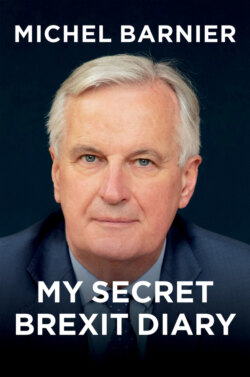Читать книгу My Secret Brexit Diary - Michel Barnier - Страница 32
Monday, 17 October 2016: The financial settlement
ОглавлениеBack in Brussels, one thing is clear: the issue of the financial settlement will be a major point of contention with the British, but will also be a question of unity among the twenty-seven. None of the five Prime Ministers with whom I have already met wants to pay one euro more or receive one euro less on account of Brexit.
I discuss this subject today with the group of Directors-General, some of the most experienced men and women in the Commission, who are supporting me in this negotiation. And I am almost physically reassured to be able to share my thoughts with them, to provoke reactions and to hear their opinions.
On budgetary matters our position is clear. Thanks to Philippe Bertrand, the ‘mad scientist’ of the European budget, a photographer and aviator in his spare time, we have a method and, on the basis of the Union’s accounts, we know exactly what the British owe us. What was decided with twenty-eight members must be paid as if there were twenty-eight.
Preliminary estimates indicate that if the UK were to settle its accounts with the EU on 1 April 2019, the gross liability would be €50–60 billion. Of course, this would need to be balanced against the sums owed to the UK, in particular in respect of the Common Agricultural Policy and structural funds.
Within the framework of the financial settlement, there is another €10–15 billion that could come into play in the future if certain guarantees given by the UK along with other European countries, for example with regard to European aid to Ukraine, were to be called upon. This is what we call ‘potential liability’.
Finally, since the financial settlement with the UK will have to be global, we are working on other commitments that fall outside the European budget, such as those made by the European Investment Bank.
Even if we present only logical and rational arguments, I suspect that talks on these budgetary issues, to be dealt with at the very beginning of negotiations, will be arduous.
One important variable here will be the date of the UK’s exit: the later the exit date, the lower the amount due on exit, since the UK will already have paid a significant proportion of the total as a member state.
Obviously, beyond the question of the financial settlement, the UK’s departure will result in an overall reduction in the European budget. This may present an opportunity to review the structure of the budget and start from scratch, directing it more towards innovation and the political priorities of the Europe of tomorrow. It could also be an opportunity to reopen the important issue of the financing of the budget itself, something that Mario Monti is now looking into at the request of Jean-Claude Juncker.
On the revenue side, this will also be the moment to put an end to the UK rebate, which Margaret Thatcher negotiated at the Fontainebleau summit in 1984, and to discuss the ‘rebates on the rebate’ that have been negotiated over the years by other net contributors to the European budget, such as the Netherlands, Germany, Austria and Sweden. ‘I want my money back’, said Thatcher back in 1984. Today the tables are turned, but this famous phrase only serves to remind me that financial negotiations with London are never a straightforward affair.
